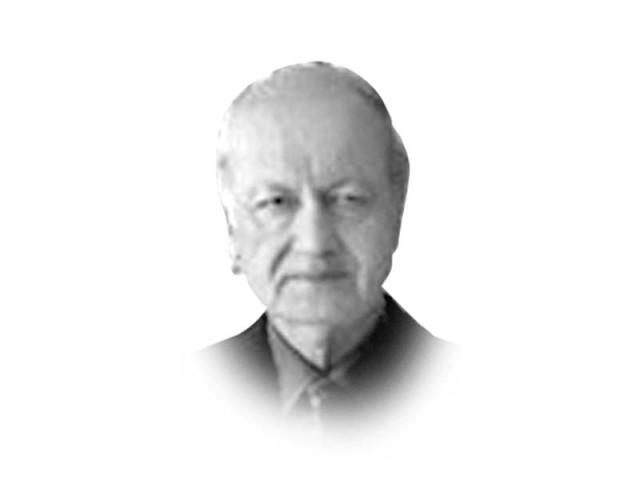Democracy’s moment
Political parties are being used to keep leaders in power, than solve problems. There is need to call system to order.

Democracy’s moment
Recent tragic incidents, especially Siachen and Salala, cast a deep shadow on this year’s function. These two episodes were also a reminder of Pakistan’s crisis-ridden relationships with India and the US.
Martyrs’ day reminds us that the sacrifices by our soldiers and civilians cannot be wasted by our misdeeds and weaknesses elsewhere. It was, perhaps, for this reason that the chief of army staff used the occasion to convey some meaningful and nuanced messages. His categorical support for democracy was reassuring, especially at a time when the civilian government is shaky and Prime Minister Yousaf Raza Gilani is fighting a political battle of survival against a court judgment. Despite the shabby state of affairs, international and domestic conditions have restrained the army from taking power directly. Politically, for the army, taking power again makes little sense as the country is becoming increasingly ungovernable and full of risks for it. Although many people feel frustrated with poor governance and yearn for a return to military rule, the army may think otherwise given its own political interests.
General Kayani also remarked that all institutions should remain within their constitutional limits. This was significant and ironic, considering how the army had crossed constitutional red lines on several occasions in the past. Staying within boundaries applies to all institutions including the judiciary. In its sincere effort in trying to get rid of the corrupt and rent-seeking practices of certain politicians and bureaucrats, the judiciary, at times, tends to usurp the powers of the executive. Clearly, the status of the higher judiciary gives it a certain amount of immunity. But when it goes too far to impose its authority in every field of the executive it could, inadvertently, and even in good faith, abuse our democratic system. All institutions need to calibrate their actions within their constitutional mandate or they risk creating an impression that they believe that ends justify the means. On the contrary, ends and means should both be within the ambit of the law.
Pakistan’s central issue revolves around accountability and balance of power within institutions. By repeatedly engaging in corruption, failing to provide even the basics of governance and avoiding accountability, the government has brought out the worst in our individual leaders and institutions. Politicians are elected to lead and to stand for the rule of law. The executive’s dismal performance has meant an abject failure of leadership. There is no respect for the social contract that is supposed to exist between the state and the individual. Political parties are being used to keep their leaders in power instead of solving the country’s problems. There is a need to call the whole system back to some sort of order.
The question then arises: is the opposition party, the PML-N, capable of providing an alternative political and strategic paradigm? Or, can Imran Khan harness a movement to build Pakistan anew? At this time, Imran has constructed a platform that touches many populist buttons and has developed a fairly impressive following. He has been staying out of elections and is advising the PML-N and other political parties to resign from parliament. This move could have unintended consequences. Launching anti-government demonstrations in the form of public rallies against the government is an acceptable practice even in mature democracies but operating outside the loop could undermine the very system that Imran himself would need if and when he came to power. He is a rejectionist and is justified in his opposition to politics that is hierarchical and restricted to certain families. But besides projecting the ugly side of opponents, it is important that he looks at the broader picture, works toward institutional balance and harnesses forces that can tackle major issues confronting the country. In short, only that party which reinvents Pakistan for the 21st century will succeed. For this, it must develop a working consensus among major institutions and harness the forces of modernisation. Clearly, it is democracy’s moment that our leaders have to seize and build on. The consequences of failure could be horrendous, leading to anarchy and the country ending up with some form of authoritarian religious or military regime.
Published in The Express Tribune, May 8th, 2012.















COMMENTS
Comments are moderated and generally will be posted if they are on-topic and not abusive.
For more information, please see our Comments FAQ